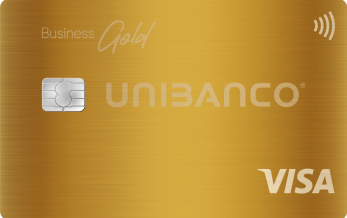In order to invest, increase their productive capacity and become more productive, companies often need external financial support. According to the Ministry of the Economy, demand for credit for companies has been rising consecutively since 2014. There are a number of options to suit the various stages of a business's life, from start-up to internationalisation to simply paying off debts, companies have a variety of credit solutions at their disposal.

Taking out a business loan, as we have mentioned, must take into account the purpose for which it is intended.
Companies have different profiles and objectives, so they don't all have the same needs or the same reasons for resorting to bank credit, which is why it's best to evaluate the solutions offered by the various financial institutions and, together with them, choose the best solution for your particular case.
Expanding a business; financing the purchase of equipment or new premises; a restructuring or internationalisation plan; among many other things, can all be good reasons to use this type of business loan.
Public funding lines available to companies on the IAPMEI (Agency for Competitiveness and Innovation) website, bank credits, corporate credit cards and even loans for start-ups or micro-businesses through personal loans - the list of funding opportunities is long, but you have to choose well, as this will have a direct impact on the financial health of the business.
Over the next few lines we're going to look at some of the most commonly used types of business credit in Portugal and explain how to use them in the day-to-day management of your company.
Publicly backed funding lines
With normally low spreads and long repayment periods, public financing lines offer a wide range of credit opportunities, but they meet tight criteria, are in high demand (which can delay the financing process) and each one is intended for a very specific purpose: exporting, short-term cash-flow boosting, company creation, investment, innovation, strengthening equity or revitalisation.
Organisations wishing to simulate credit for companies through publicly-supported funding lines can find a simulator at IAPMEI that allows them to check whether there are any lines currently open for their line of business.
Classic" bank loans
In the case of "classic" bank loans, this is a suitable form of financing if the company is moderately indebted and has a good capacity to generate cash flow. Entrepreneurs with businesses in these conditions can resort to bank loans to finance their operations and expansion programmes on very advantageous terms without ceding part of the company's control. This type of credit is advisable when expanding a profitable business, financing a major acquisition (equipment, installations, etc.) or when the company's cash flow is strong and secure.
Credit lines and factoring
The possibilities of financing through financial loans do not end with the classic bank loan.
Lines of credit are a form of flexible, short-term bank loan in which the lending institution gives the company the right to draw down funds within a previously agreed ceiling, depending on its cash flow needs. Lines of credit are particularly suitable for dealing with temporary and foreseeable cash flow shortages (which are common in seasonal businesses, for example) or for preventing unexpected disruptions.
Factoring is also an instrument for cash management, i.e. covering short-term needs. The factoring contract consists of the company transferring its receivables to a specialised company that will be responsible for collecting them. The factoring company advances a portion of the value of the credit to the company and receives a commission in return. This method has the advantage that the company can realise its loans without being dependent on the customers' payment deadline. It has the disadvantage of the associated cost, which reduces the profitability of sales.
Business credit cards and personal loans (micro and small businesses)
Despite having similar characteristics to a credit card for individuals, the corporate credit card has specific characteristics that allow it to meet the needs of organisations in areas as diverse as the payment of fuel, bonuses, advances, equipment purchases, corporate travel, representation expenses or even the purchase of licensing or top-ups for investments in advertising purchase platforms such as Google, Facebook and Instagram.
Take the case of credit cards for Unibanco companies. In addition to the potential set out in the previous paragraph, these Unibanco Business cards allow companies to reduce administrative costs (centralisation of accounts and better financial planning), separate personal and professional expenses (characterisation of expenses) and also give access to the Company Management Portal where, among other options, companies can control the number and limits of use of each card, control the consolidated expenses of the company and each employee, detect (in real time) irregular situations, consult the most used sectors of activity and suppliers and request changes to the usage limit.

In addition to the advantages for the organisation, Unibanco cards also provide their users with an App, which allows you to monitor all your transactions wherever and whenever you want, set security alerts for greater control, access an expense manager, make payments for purchases and services and make payments even when you don't have your card with you, using the App and your smartphone.
With record growth rates during this pandemic, online payment solutions for platforms e-commerce or the use of Contactless technology in physical purchases have established themselves as the maximum exponent of what we have just mentioned.
Between March and April this year, the data compiled by REDUNIQ Insights tell us that the number of subscriptions to the online payment REDUNIQ as the REDUNIQ@Payments (allows remote payments by e-mail, SMS or WhatsApp), the E-Commerce and payment for issuing Multibanco references with simple integration, grew by 333% compared to the same period in 2019.
Similarly, the prolonged and sustained growth in the weight of transactions contactless (card/smartphone, etc.) in the invoicing of Portuguese businesses throughout 2020, the need for companies to adapt to their customers' new payment habits is skyrocketing. This means acquiring a automatic payment terminal accommodating contactless payments as with the solution Contactless TPA of REDUNIQ.
With no associated membership costs, this terminal guarantees the merchant a reduction in cash handling costs, higher average transactions and the guarantee that the payment is actually made.


